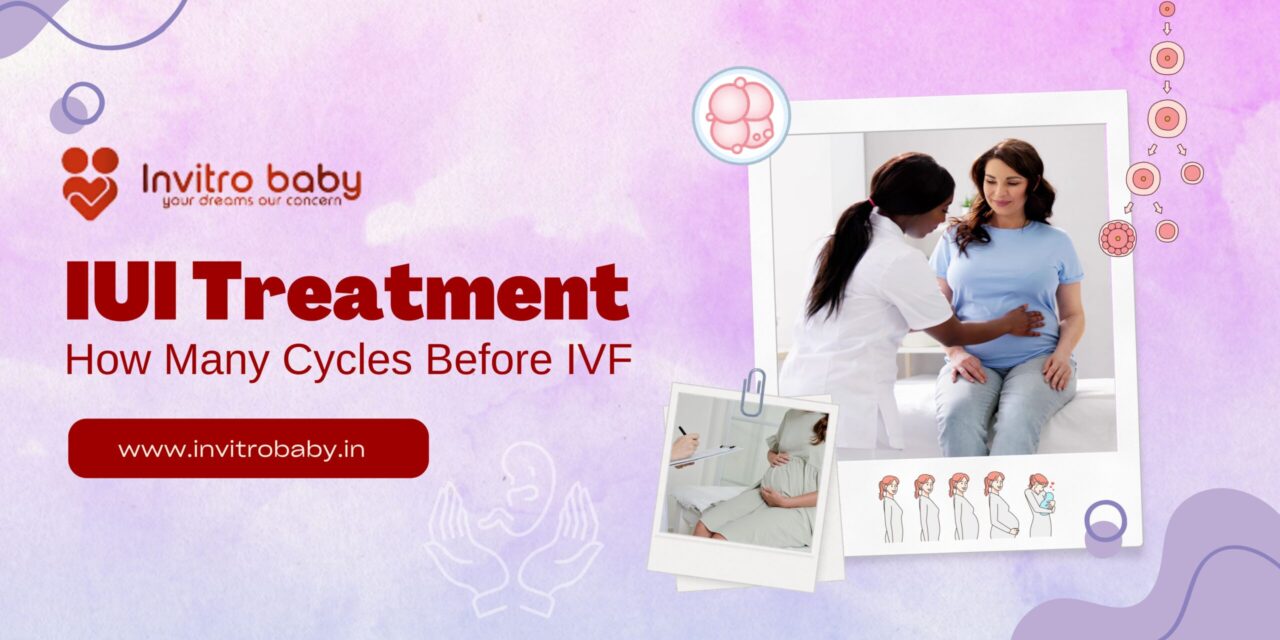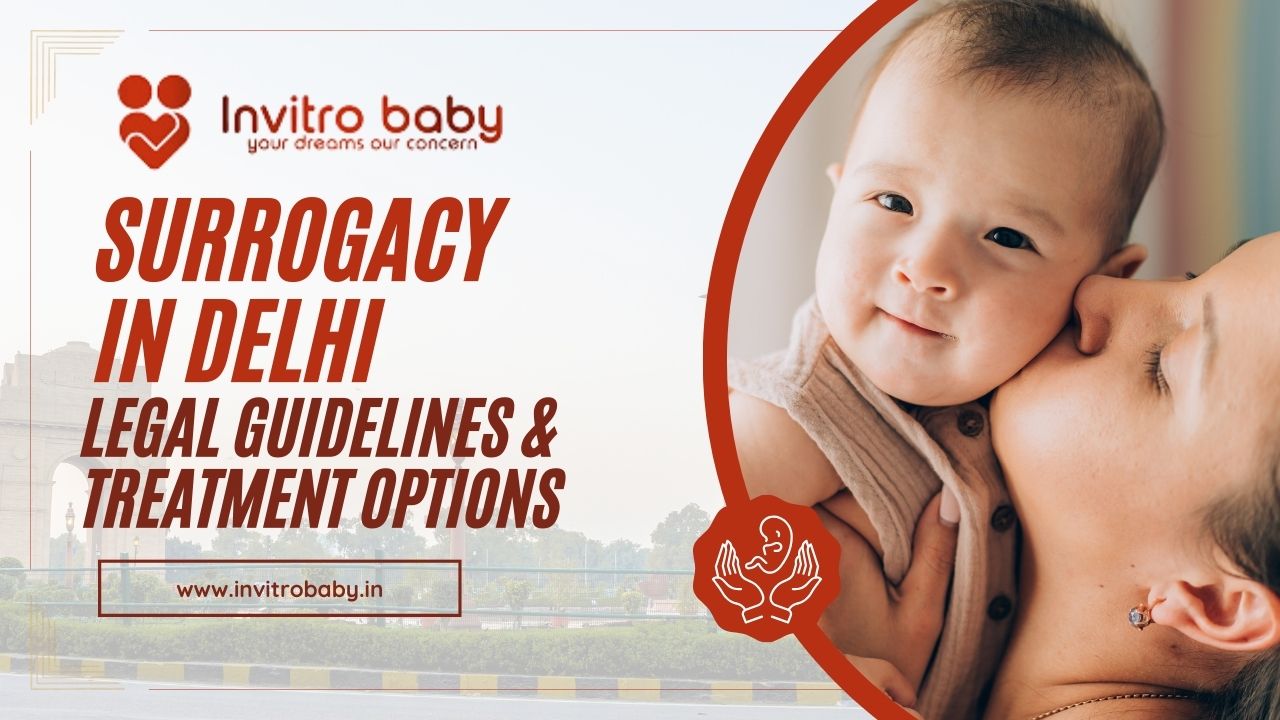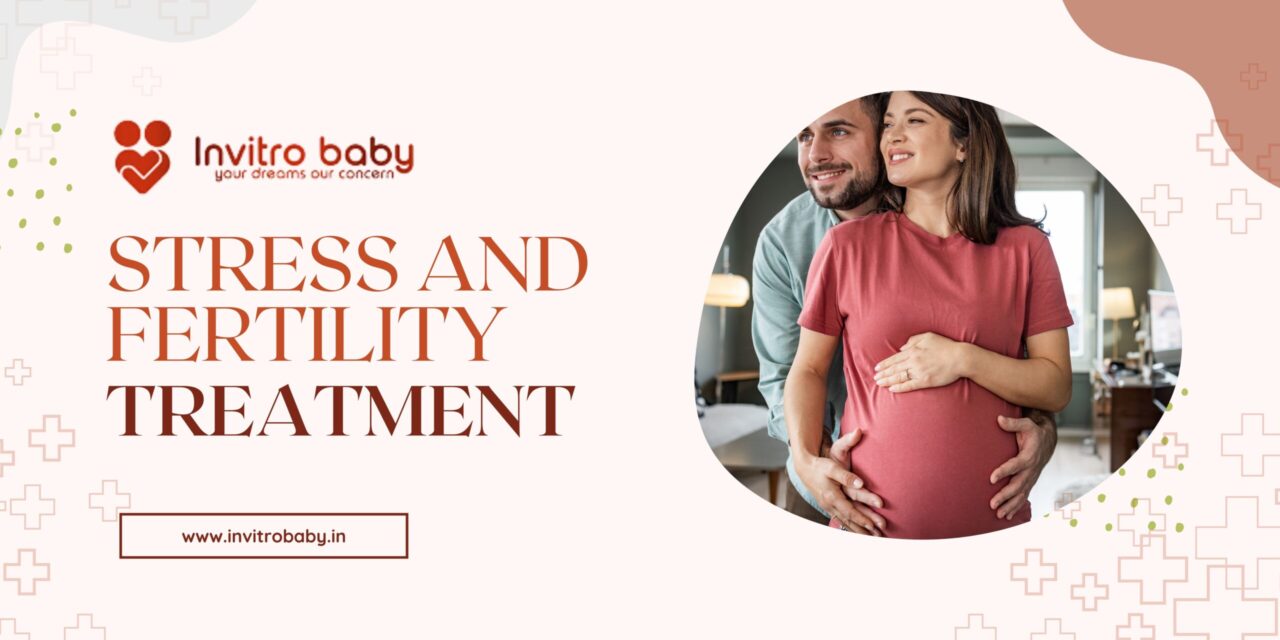IUI Treatment: How Many Cycles Should You Try Before Moving to IVF?
Intrauterine Insemination (IUI) is a widely recognized fertility treatment that offers hope to couples struggling with infertility. It is often the first line of treatment before moving on to more advanced procedures like IVF. IUI is considered less invasive and more affordable, making it a popular choice for many couples.
A question that often crosses the minds of many couples is
How many times should I try IUI before considering other options?
This blog explores the effectiveness, recommended attempts, and factors influencing the success of IUI treatment, along with expert insights from Dr. Thara Fotedar, a renowned fertility specialist.
- What is IUI and How Does It Work?
Intrauterine insemination (IUI) is a specialized assisted reproductive technology (ART) procedure designed to enhance the chances of conception by directly placing prepared sperm into the uterus. During this procedure:
- Sperm is washed and concentrated to improve its quality.
- It is then directly placed into the uterus during ovulation, increasing the chances of fertilization.
- This process bypasses the cervix and shortens the distance sperm needs to travel to reach the egg.
IUI is typically recommended for:
- Unexplained infertility (when no clear cause is identified)
- Mild male factor infertility (low sperm count or poor motility)
- Ovulation issues (irregular or absent ovulation)
- Cervical factor infertility (thick cervical mucus hindering sperm movement)
- Same-sex couples or single women using donor sperm
Key Benefit: IUI is a minimally invasive procedure with fewer side effects and a shorter recovery time compared to IVF.
- How Many IUI Cycles Should You Try?
The success rate of IUI varies based on factors such as age, sperm quality, and underlying fertility conditions. Here’s a general guideline on how many cycles to attempt:
- 1–3 cycles:
- Many fertility specialists recommend at least three consecutive IUI cycles before moving to more advanced treatments.
- Research shows that 80% of successful IUI pregnancies occur within the first 3-4 attempts.
- 4–6 cycles:
- For women under 35 years with no major fertility issues, specialists may suggest trying up to six IUI cycles.
- This increases the cumulative pregnancy rate.
- After 6 cycles:
- If IUI fails after six attempts, doctors often recommend moving to IVF for better chances of conception.
💡 Key Insight: While 3-6 cycles are generally advised, the decision to continue or switch treatments should be based on personal medical factors and the advice of your fertility specialist.
- Factors Influencing IUI Success
The success of IUI is influenced by several key factors:
- Age of the Woman:
- Women under 35 years have a success rate of around 10-20% per cycle.
- For women over 40, the success rate drops to 2-5% per cycle.
- Sperm Quality:
- Higher sperm motility and count improve the chances of success.
- Ovarian Reserve:
- Women with a higher ovarian reserve tend to respond better to ovarian stimulation, enhancing IUI outcomes.
- Timing and Cycle Monitoring:
- Proper timing of the IUI procedure during ovulation is critical for success.
- Ovulation-inducing medications like Clomid or Letrozole are often used to increase egg production and boost success rates.
- Underlying Conditions:
- Conditions like endometriosis, PCOS, or blocked fallopian tubes can reduce the effectiveness of IUI.
- In such cases, IVF may offer better results.
- When to Move from IUI to IVF?
If IUI cycles fail to result in pregnancy, your fertility specialist may recommend moving to IVF. You may need to consider IVF if you experience:
- Recurrent IUI failures (after 3-6 cycles)
- Severe male factor infertility, such as low sperm count or reduced motility
- Tubal issues (blocked or damaged fallopian tubes)
- Poor ovarian response (low egg production despite stimulation)
- Endometriosis or age-related infertility
Expert Tip: IVF offers higher success rates compared to IUI, especially for couples with complex fertility issues.
- Meet the Expert: Dr. Thara Fotedar – Your Trusted Fertility Specialist
At Invitrobaby, you are in expert hands with Dr. Thara Fotedar, a leading Fertility Specialist, Gynecologist, and Obstetrician with years of experience in treating infertility.
Dr. Fotedar specializes in:
- IUI, IVF, and ICSI treatments
- Egg freezing and fertility preservation
- Reproductive endocrinology
- Customized fertility plans based on individual medical conditions
Her compassionate approach and expertise help couples navigate their fertility journey with confidence and care.
- IUI vs. IVF: Which is Right for You?
Understanding the difference between IUI and IVF can help you make informed decisions:
Feature | IUI | IVF |
Invasiveness | Minimally invasive | More invasive |
Cost | Less expensive | Higher cost |
Success Rate | 10-20% per cycle (under 35 years) | 40-60% per cycle (under 35 years) |
Treatment Duration | Shorter process | Longer, multi-step process |
Best For | Mild infertility cases | Severe or complex infertility |
- Your Fertility Journey: Taking the Next Step with Confidence
IUI treatment offers a conservative and effective path to parenthood, but the number of attempts plays a key role in determining the next course of action. While 3-6 IUI cycles are generally recommended, your fertility journey is unique. The decision to continue or explore IVF should be guided by your personal medical history and the expertise of your fertility specialist.
If you are seeking compassionate and advanced fertility care, consult with Dr. Thara Fotedar at Invitrobaby. With her expertise and personalized approach, you can take the next step toward fulfilling your dream of parenthood with confidence.



